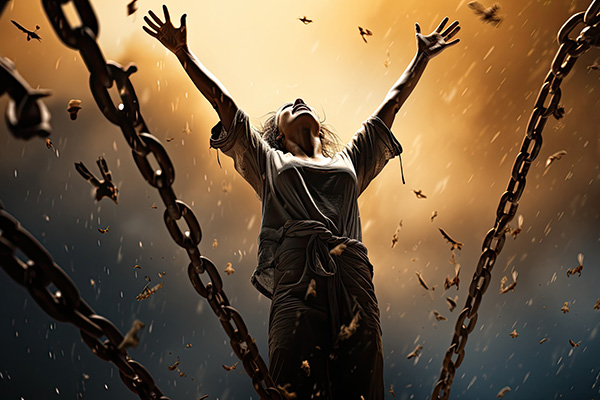cruelty
Small Gestures Of Kindness In A Time Of Cruelty
 Many people are feeling anxious or uncertain in recent years with everything that has been happening in the world.
Many people are feeling anxious or uncertain in recent years with everything that has been happening in the world.
Some are fearful and others stressed or unsure how to act appropriately in these restless times. Some even act out in destructive or dramatic ways, taking their frustration out on others.
It is common knowledge that the digital age and social media has spawned a generation of computer warriors and online bullies who express their insecurities and fears, in often extremely mean and cruel ways, from the comfort of their living rooms and basements.
This savage lack of empathy and decorum has seemingly now spilt over into our streets and neighborhoods too.
It is easier for many to be critical and judgmental, to complain and argue, instead of facing facts, dealing with the truth and seeking lasting solutions.
Often not knowing the entire story, many people choose to see only see one side of things, while telling others off for disagreeing with their limited point of view. The computer has unfortunately given some people a platform to spread strife and hatred, instead of love, hope and kindness.
I pray that more people will strive to seek the truth and learn to look for the good and kind in others. Showing tolerance, patience and kindness is always the better, more open approach. And always remember that if someone attacks you directly, then it often means they are somehow struggling or hurting. It usually serves no real purpose to attack them back. Continue reading
The Divine Path Back To Unconditional Love
 Recently, I was meditating on a deeply personal situation — one that stirred up waves of anger and resentment, even bordering on hatred and bitterness. Then I received an insight from spirit that stopped me in my tracks. It was one of those profound moments when time stands still and sacred truth illuminates your heart.
Recently, I was meditating on a deeply personal situation — one that stirred up waves of anger and resentment, even bordering on hatred and bitterness. Then I received an insight from spirit that stopped me in my tracks. It was one of those profound moments when time stands still and sacred truth illuminates your heart.
“Never forget the Golden Rule,” spirit said. “Do unto others as you would have them do unto you. Do not do to others what you do not want done to you. Do unto others as you would have them do unto you.”
Suddenly I realized that the deeper truth of holding unconditional love in your heart. It’s a universal spiritual principle because it works both ways! You would never, ever want the same hatred or anger that you direct at others, to be directed at you.
Now let me be honest. My anger this time wasn’t just outward to others. It also turned inward. It was a growing dark, toxic presence in my heart and mind.
Life has been hard lately. Too many people I know have died far too young. Watching my beloved partner in a so-called “medical facility” that should not be allowed to take care of anyone, especially our elders. Almost losing him. Being emotionally and financially drained by someone I trusted. The exhausting noise of political chaos.
It has been one thing after another, piling up until I reached a boiling point. I began to ask the big, painful question: Why? Why all this suffering? Why now? Why me? And I wasn’t just angry at the world — I was angry at myself. Angry at Source, Spirit, God. Angry at the seeming cruelty of it all.
Prayer Is A Refuge From The Noise And Chaos
 It is easy to feel overwhelmed these days. Modern life presents many challenges, from personal struggles to global issues.
It is easy to feel overwhelmed these days. Modern life presents many challenges, from personal struggles to global issues.
We live in a world increasingly dominated by negativity, division and fear, where cruelty and hatred are not only considered acceptable, but even celebrated.
It’s really no secret to the spiritually aware person that there is an increasing battle between good and evil. Negative influences often masquerade as appealing or trendy, making it even more important to stay connected to your inner truth and divine guidance.
I often have to turn off my cell phone and television these days as I see the forces of evil growing stronger than ever. It can be hard to stay grounded in hope and clarity.
Fortunately, we have access to a variety of spiritual practices to help us stay grounded, find clarity, and maintain our inner balance. My favorite is a powerful, time-honored tradition: prayer.
While prayer is practiced in many religions and spiritual traditions, it is universal and can be embraced by anyone, regardless of their belief system. It transcends cultural and religious boundaries and is not tied to any dogma or required ritual.
Traditionally, religious prayer follows specific doctrines, but prayer is an open practice available to anyone to contemplate and express their deepest thoughts, feelings, and desires in a mindful, empowering way.
Shield Your Dreams From The Naysayers
 I’m in the midst of a major shift in my life – a bold leap forward that promises transformative and exciting changes for me and my family.
I’m in the midst of a major shift in my life – a bold leap forward that promises transformative and exciting changes for me and my family.
It is taking a lot of my time and requires a lot of work and personal sacrifice, as there are many moving parts that need to align to make it all happen. However, I know it will work and I trust in spirit’s guidance and divine timing. I’ve successfully navigated similar situations before in my life, so I’m confident it can be done.
As is often the case in these situations, I find myself surrounded by people who are projecting their fears and limitations onto me and my goals. Based on conversations with friends and clients who are supportive and encouraging, this seems to be a common pattern. What is clear to me is that these are people who have chosen to live very different lives from mine.
For example, I have a relative who has always lived in fear and has repeatedly tried to discourage me from every endeavor I’ve ever pursued — almost all of which have been successful. The few that have not worked out for the best I consider valuable life lessons.
I started my first business when I was 26 years old. This family member scoffed at me, saying it was too risky and that I was wasting my time and money. Well, that business ended up paying more than just my bills for over a decade, while many of my peers spent the best years of their lives in soul-destroying dead-end jobs. It allowed me, for example, to buy two houses and several new cars, and best of all, I loved what I was doing!
The Spiritual Power Of Choosing To Forgive
 Forgiveness is a much-discussed topic in spiritual circles. It is also often deeply misunderstood.
Forgiveness is a much-discussed topic in spiritual circles. It is also often deeply misunderstood.
Forgiveness does not mean condoning wrongdoing or accepting abuse or cruelty. Instead, it involves choosing not to carry the darkness and negativity that has been inflicted upon you, and refusing to allow it to affect your well-being, either physically or emotionally.
While it’s ideal to find compassion for those who have wronged you, it’s not always possible. Understand that those who caused you harm are often suffering themselves.
Happy and fulfilled people are naturally kind, generous, and honest. In contrast, those consumed by self-loathing and misery tend to spread chaos and cruelty. Their relationships are full of conflict and dissatisfaction.
I once worked with a man who was clearly struggling with mental illness. Circumstances placed us in a business relationship that I initially tried to avoid, preferring to distance myself from unhealthy situations. However, I was compelled to help him because I was told that my true role was to support his children and providing help where it was needed most.
This unfortunate man is consumed by rage from his own traumatic past-abuse by his mother, mistreatment by her successive husbands, and conflict with his first ex-wife. His life is a testament to the destructive power of unresolved anger and lack of forgiveness. His toxic energy is rooted in past hurts and a cycle of inflicting pain on others.

